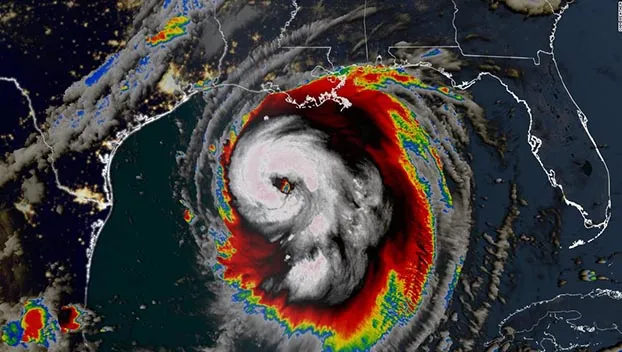Ken Stickney: The Texas that terrifies … or not
Published 9:39 am Wednesday, March 13, 2019
Scarcely into Texas, not far from Adams Bayou, stands the world’s most discouraging road sign: El Paso, 857 miles.
Entering Texas at its eastern reaches, I’d see that sign and think that if I were bound for El Paso that I’d dump my car at the nearest airport or just turn back. But I would miss a lot, both there and on the way, if I quit my journey.
I think of that signpost whenever Texans tell me not about the Texas they’ve seen but about the Texas they’ve missed. Never been to Amarillo or LBJ’s ranch. Never crossed the Red River or the Rio Grande or hiked in the Big Bend. (And no, I’ve never been to Big Bend. Or El Paso. But I’ve seen the others. And more.)
I thought about that two weeks ago, hiking with my brother in Montgomery County, on three hours worth of marked trails over soggy parkland. Only heading toward the car did we see other humans — a young couple with their dog. As hiking weather goes, overcast but cool wasn’t bad. No snakes or wild hogs or whatever else calls Texas forests home. It leaned toward beautiful.
On the trail my brother recounted that he and his wife, with a sudden whim and vacation time to spare, had bolted for the Big Bend last year. It was a 10-hour drive and a lifetime memory. Breathtaking. Texas holds untold hidden treasures for neophytes like ourselves; why shouldn’t it hold the same for lifelong Texans?
The first time I saw Texas I was a teenager, living north of Boston. My brother came home late on a Friday afternoon and said, “Let’s go to New Orleans.” He was on semester break; I’d been laid off from a factory job during the first oil crunch. Why not? We were packed in 30 minutes.
In Knoxville, Tennessee, he said we were halfway to Mexico, so … well, why not? We got to appreciate the breadth and depth of Texas by driving past the King Ranch… and driving. And driving. And seeing road signs with messages like, “Next Gas: 50 miles.” That was new to natives of New England, where you could set out at sunrise, touch all six New England states by auto and be home by sunset to grill dinner.
I’ve been reading “Texas Blood,” by Roger D. Hodge, who was reared along the Rio Grande and, in this work, “grapples” with where he once lived, which was on 10 acres in the general neighborhood of Del Rio, a town that was only a news story dateline to me until I picked up Hodge’s book. I’m halfway through his highly readable work about a place I’ve never seen.
One reviewer said, “Roger D. Hodge has written a wonderful book about our most vexed and peculiarly American state, with an eye for detail and anecdote that’s as loving as it is merciless.” Vexed?
I’ll buy this: Texas is peculiarly American, a place where a typical Texan might raise sheep along the Mexican border, write code in Dallas, lay pipe in west Texas, shrimp near Port Arthur, sell books in the shadow of Rice University, build apartments, well, almost anywhere. It’s as refined or as primeval as where you choose to steer your vehicle.
It is one state with many sub-states within, all of them worth the drive-through or the stop-in. Texas is as lonely as the Palo Duro Canyon or as crowded as the I-10, I-45 overlap at 5 o’clock Wednesday. It’s so politically purple it almost ousted an incumbent senator — well, Ted Cruz — for a former punk rocker.
The New York Times cited this paragraph from early in Hodge’s book:
“People still express surprise when I tell them where I’m from … for Texas to New Yorkers and other lifelong Eastern city dwellers is a terrifying land of racism and violence and retrograde politics.”
Really? Is Texas lonelier than the Maine woods? Is it more violent than Bedford-Stuyvesant? Is its politics more retrograde than Philly’s?
My great grandparents sailed from Messina, Italy to the East Coast a century ago, where places of employment would post signs warning, “Italians need not apply.” Racism? Texas doesn’t terrify me.
Nor does a roadside sign that says “El Paso, 857 miles.” It’s not a warning. It’s an invitation. So much to see.
Ken Stickney is editor of The Port Arthur News.





